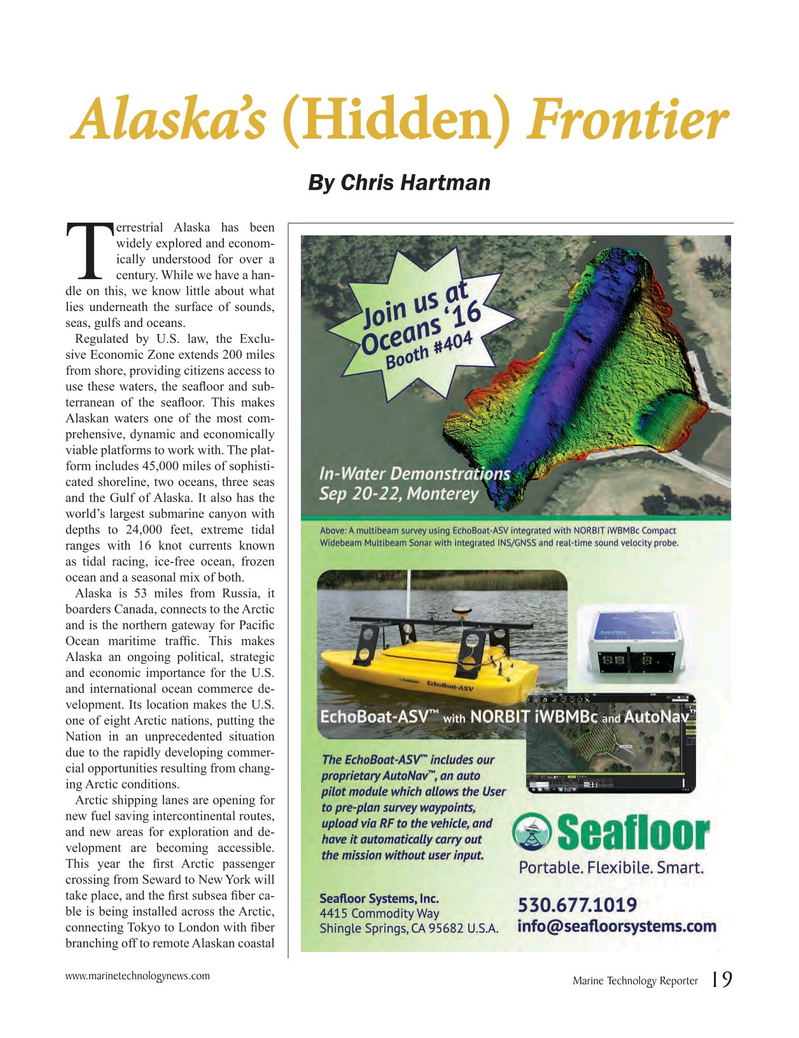
Page 19: of Marine Technology Magazine (September 2016)
Ocean Observation: Gliders, Buoys & Sub-Surface Networks
Read this page in Pdf, Flash or Html5 edition of September 2016 Marine Technology Magazine
Alaska’s (Hidden) Frontier
By Chris Hartman errestrial Alaska has been widely explored and econom- ically understood for over a
Tcentury. While we have a han- dle on this, we know little about what lies underneath the surface of sounds, seas, gulfs and oceans.
Regulated by U.S. law, the Exclu- sive Economic Zone extends 200 miles from shore, providing citizens access to use these waters, the sea? oor and sub- terranean of the sea? oor. This makes
Alaskan waters one of the most com- prehensive, dynamic and economically viable platforms to work with. The plat- form includes 45,000 miles of sophisti- cated shoreline, two oceans, three seas and the Gulf of Alaska. It also has the world’s largest submarine canyon with depths to 24,000 feet, extreme tidal ranges with 16 knot currents known as tidal racing, ice-free ocean, frozen ocean and a seasonal mix of both.
Alaska is 53 miles from Russia, it boarders Canada, connects to the Arctic and is the northern gateway for Paci? c
Ocean maritime traf? c. This makes
Alaska an ongoing political, strategic and economic importance for the U.S. and international ocean commerce de- velopment. Its location makes the U.S. one of eight Arctic nations, putting the
Nation in an unprecedented situation due to the rapidly developing commer- cial opportunities resulting from chang- ing Arctic conditions.
Arctic shipping lanes are opening for new fuel saving intercontinental routes, and new areas for exploration and de- velopment are becoming accessible.
This year the ? rst Arctic passenger crossing from Seward to New York will take place, and the ? rst subsea ? ber ca- ble is being installed across the Arctic, connecting Tokyo to London with ? ber branching off to remote Alaskan coastal www.marinetechnologynews.com
Marine Technology Reporter 19
MTR #7 (18-33).indd 19 8/26/2016 3:51:34 PM

 18
18

 20
20
